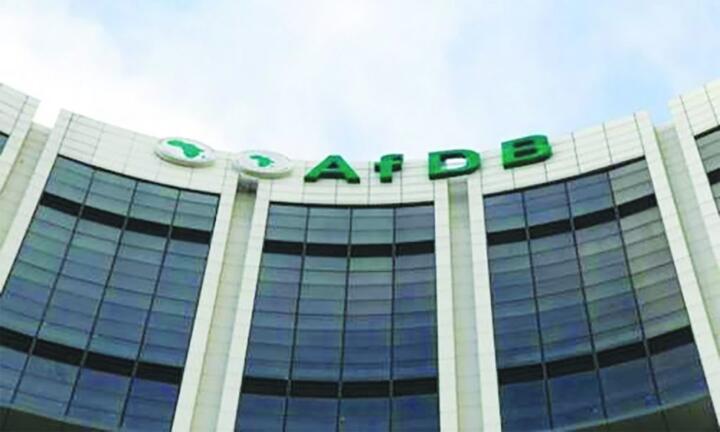The African Development Bank (AfDB) has pledged a $1.2 million grant to bolster the stability and resilience of Nigeria’s national electricity grid—a critical step toward reducing outages, improving distribution efficiency, and supporting long-term grid reliability.
The grant, announced by AfDB officials and Nigeria’s Power Ministry, is earmarked for targeted interventions in grid monitoring, operational coordination, and technical upgrades at key substations across high-demand regions. It is part of a broader strategy to support system operators and transmission entities as they implement reforms intended to modernize transmission capabilities and reduce systemic disruptions.

According to Energy Ministry representatives, the grant will fund the installation of advanced grid-stabilization tools such as phasor measurement units (PMUs), smart sensors, and supervisory control and data acquisition (SCADA) enhancements. These systems are designed to provide real-time visibility into voltage stability, frequency fluctuations, and system load patterns—enabling quicker fault detection and coordinated response across the network.
AfDB regional energy managers underscored the importance of strengthening grid infrastructure foundational to Nigeria’s broader electricity sector reforms. They emphasised that efficient transmission and stability mechanisms are prerequisites for grid expansion plans, integration of renewable energy, and private sector confidence in power delivery reliability.
Power sector reform advocates praised the grant as a timely intervention. For years, Nigeria has grappled with frequent grid collapses, low transmission capacity utilisation, and uncoordinated control systems. The AfDB funding is expected to help reduce blackout occurrences, optimize load dispatch, and create performance metrics that drive accountability across system operations.
In collaboration with the Transmission Company of Nigeria (TCN) and the independent system operator, project implementation will involve workforce training on system analytics, predictive maintenance, and frequency control protocols. Grid administrators will receive knowledge-transfer modules and simulation tools to interpret system data, forecast stress conditions, and prevent cascading failures.
The Energy Ministry also plans to support the upgrade with cross-cutting policy reforms. These include improving metering at injection points, enforcing technical loss reduction targets, and enhancing cost-pass-through models to ensure transmission is adequately financed and maintained. The goal is to complement technical improvements with governance reforms that institutionalize grid reliability.
While $1.2 million may seem modest against Nigeria’s broader power infrastructure needs, sector analysts note that targeted grants like this can yield disproportionate benefits when applied to critical points of failure—especially where monitoring and early warning systems are weak. Real-time operational capability can reduce system collapse risk and lower cumulative impact on industrial and residential consumers.
The grant is part of AfDB’s larger Energy Support Program, under which several African countries have received assistance for grid optimization, renewable integration, and regulatory strengthening. Nigeria’s inclusion reflects AfDB’s recognition of the country’s centrality to regional electricity trade ambitions, such as West African Power Pool projects and planned renewables partnerships.
AfDB officials also highlighted the environmental value of improved grid stability. Enhanced infrastructure is expected to reduce reliance on backup diesel generators, minimizing greenhouse gas emissions and improving ambient air quality in urban hubs. This aligns with both national climate goals and the bank’s “Green Baseload” agenda.
Government leadership emphasized that while foreign grants are valuable, long-term transformation demands cohesive alignment between technical intervention, fiscal planning, and institutional responsibility. Therefore, AfDB’s grant is contingent on accountability frameworks, delivery timelines, and measurable performance benchmarks tied to system reliability targets.
The Energy Ministry confirmed that pilot installations will commence within three months in identified high-risk transmission corridors. A central monitoring center will aggregate real-time data, manage incident alerts, and produce quarterly performance reports. The results will be publicly shared to encourage transparency and reinforce sector-wide governance practices.
Looking ahead, the grant is seen as the first phase in a multi-tier support structure. Additional AfDB financing is being considered for wider grid expansion, cross-border interconnection and renewable energy linkage, including solar-wind hybrid pilot projects. Work is underway to align these future programs with Nigeria’s national power master plan and global climate financing mechanisms.
In closing remarks, AfDB representatives reaffirmed their confidence in Nigeria’s capacity to manage effective grid modernization. They underscored that stable and predictable power would not only boost investor sentiment but also unlock industrial growth, job creation, and improved public service delivery.
As Nigeria responds to mounting pressure for reliable electricity, the $1.2 million AfDB grant is intended not just as assistance, but as a catalyst—texturing governance, aligning data-driven operations, and helping create an electricity grid foundation with long-term resilience and growth potential.
Support InfoStride News' Credible Journalism: Only credible journalism can guarantee a fair, accountable and transparent society, including democracy and government. It involves a lot of efforts and money. We need your support. Click here to Donate
